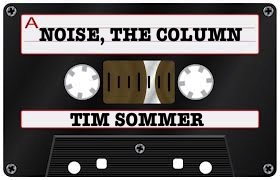I have just learned of the death of Jochen Hülder, who passed about three weeks ago. I ask for your patience as I write a few words about the passing of a man you’ve likely never heard of, who managed a band whose name probably only a few of you will know.
Jochen Hülder managed a band called Die Toten Hosen. Die Toten Hosen are likely the biggest band you’ve never heard of.
Under Hülder’s extraordinary, creative, inventive guidance, Die Toten Hosen (who formed in Düsseldorf in 1982) grew to become (by far) the biggest rock act in German history, and one of the most successful rock acts in the non-English speaking world. And it isn’t just that DTH were/are big (and they are really, really big; it would be safe to say that in Germany, they are bigger than U2 and the Foo Fighters combined, and when it comes to their place in German rock culture, perhaps the only effective comparisons would be Queen or the Stones); it is how they are big.Die Toten Hosen (which translates as The Dead Pants) were The Clash who became the Beatles, and under Hülder’s guidance, they never forgot, not for one moment, the musical, political, social, economic, cultural, and stylistic values that lay at their origin. Back in the 1970s and ‘80s, those of us who supported punk rock knew a secret: that if the world could actually hear the music un-adulterated, they would really like it. It often seemed there was an active conspiracy to prevent a large-scale American audience from hearing the beautiful, powerful, melodic, passionate, meaningful music of America (and Britain’s) punk bands; it was taken for granted that Joe Plumber and the programmer at Joe Plumber’s radio station would never play true punk rock. Nirvana, amongst others, changed that perception dramatically in the late 1980s and early 1990s.
You will dig this. I promise.
Hülder and Die Toten Hosen took the logic of the mass acceptance of punk rock for granted. They accepted as fact the idea that every rock fan in the country would want to hear the sound of classic UK/U.S. punk rock, and they took it for granted that including advocacy, charity, and compassion in that mission was an absolutely requirement; they also embraced the controversy that their left-wing and pro-immigrant positions engendered not only without fear, but with joy.
Hülder took a band whose primary musical models was Sham 69, Johnny Thunder’s Heartbreakers, the U.K. Subs, etcetera and not only said “This band can be bigger than Led Zeppelin,” he actually made it happen (note: Johnny Thunders’ last performance was as a guest on DTH’s version of “Born To Lose”). He did this via remarkable, corny, aggressive, and sometime ridiculous marketing tricks, all based on the idea that everyone in Germany needed this music and this message in their home. Some might compare Hülder to Malcolm McLaren, except we must recall that McLaren was a charlatan and a thief who ultimately cared far more about his own self-promotion and his own sense of concept than he cared about the success or well-being of his artists, and the last thing McLaren cared about was using his music to effective positive social, economic, and cultural change. Hülder never forgot the big picture.
Now, I’m not going to pretend that DTH’s music was pure as the driven snow – ultimately it evolved, quite effectively, into a high-quality and ballad-laden punk/pop/classic rock hybrid that (to American ears) might sound like Bon Jovi guesting with the Real McKenzies and playing Vibrators and Lurkers songs – but they did it the right way, they were a punk rock band that took over the world (at least the considerable parts of it that spoke German), and never sacrificed the values and joy that made them start off in the first place, and they recognized that an essential part of being a punk rocker was standing up for the oppressed. Oh, and some of their best songs are just the kind of extreme, riotous, fist-in-air singalong drinking songs you always hoped a German punk rock band would play.
I have written, on a number of different occasions, of how completely and utterly important it is to make this extraordinary cultural meme called rock mean something; about how obscene it is to appropriate the clothes and words of the disenfranchised, without actually working for the disenfranchised; about how rock’n’roll is the almost magical distillation of the artistic, melodic, and rhythmic innovations of people who had nothing, who were the utter dregs of society, and how we must honor that legacy.
Die Toten Hosen actually pulled this off. And we have to recognize Jochen Hülder as one of the greatest rock managers of all time.




